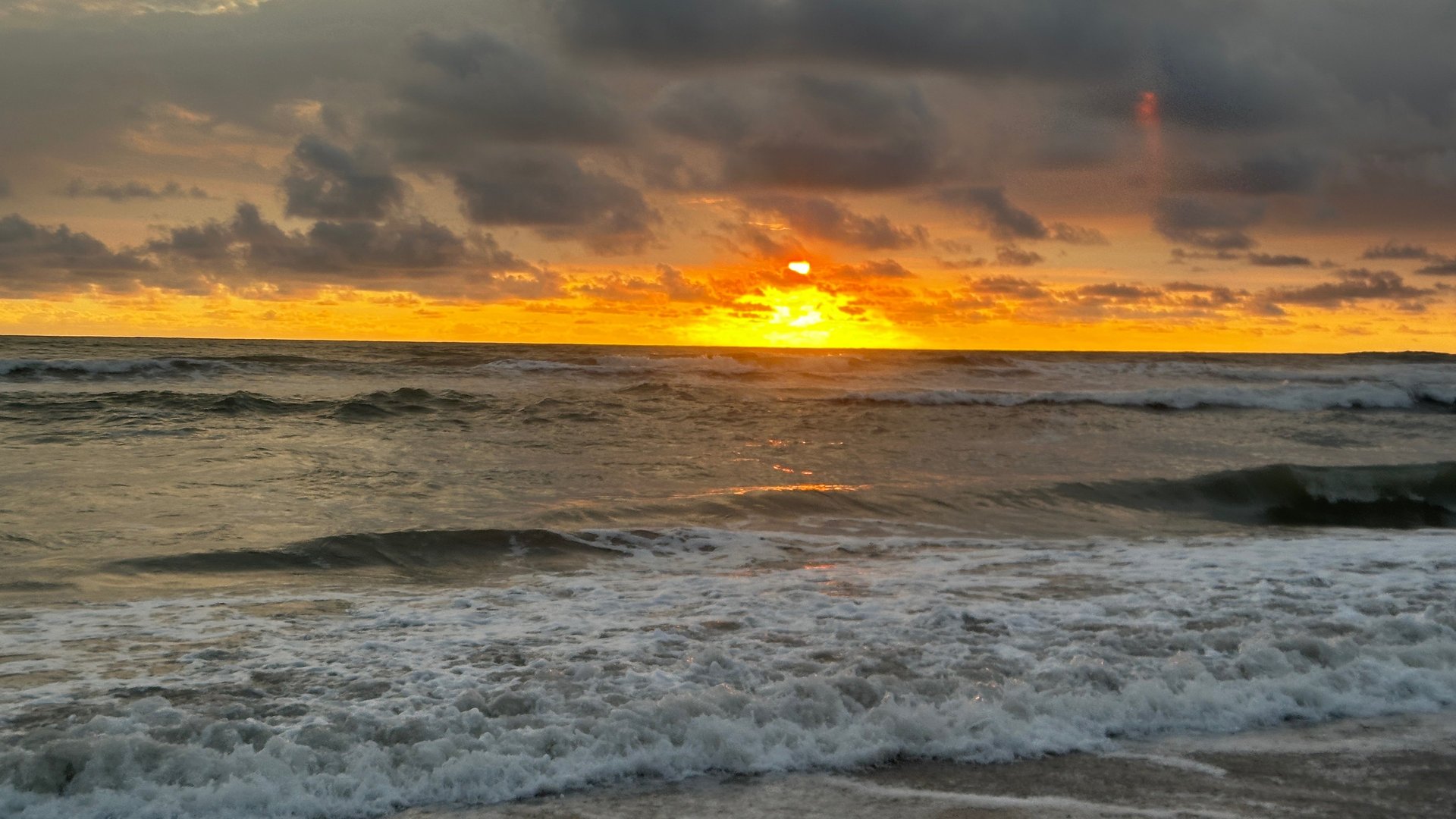A Guide to Proper Hydration
Complete Guide to Proper Hydration Many people believe that any water will hydrate them equally well. This couldn't be further from the truth. When you drink plain water—especially the "dead" water found in most plastic bottles—you're missing crucial components that your body needs to actually absorb the water.
Resonance Weaver ~ Leah Chastain
7/15/20254 min read

Beyond Water ~ A Guide to Proper Hydration
We've all heard the advice to "drink more water," but true hydration is far more complex than simply consuming eight glasses of H2O daily. If you've ever wondered why you can drink water all day and still feel thirsty, or why athletes reach for sports drinks instead of plain water, you're about to discover the fascinating science behind optimal hydration.
The Hydration Myth ~ Why Water Alone Isn't Enough
Many people believe that any water will hydrate them equally well. This couldn't be further from the truth. When you drink plain water—especially the "dead" water found in most plastic bottles—you're missing crucial components that your body needs to actually absorb and utilize that water effectively.
Your body doesn't just need water; it needs properly structured water with the right balance of minerals and electrolytes. Without these essential elements, much of the water you drink simply passes through your system without providing optimal hydration at the cellular level.
Understanding Electrolytes ~ Your Body's Hydration Helpers
Electrolytes are minerals that carry an electric charge and are essential for proper hydration. The main players include:
Sodium - Helps your body retain water and maintain proper fluid balance. Despite its bad reputation, adequate sodium is crucial for hydration, especially during exercise or hot weather. If you look at the studies, low sodium accounts for a higher percentage of heart attacks than too much.
Potassium - Works with sodium to regulate fluid balance and supports proper muscle and nerve function. Many people are deficient in potassium, which can impair hydration. Low potassium is often part of the reason for muscle cramps.
Magnesium - Essential for muscle function and helps regulate other electrolytes. Deficiency can lead to muscle cramps and poor hydration status. Stress, toxic environment, and modern lifestyles deplete magnesium and there are estimates of up to 90% of people in developed countries are magnesium deficient.
Calcium - Important for muscle contractions and nerve signaling, playing a supporting role in hydration.
Chloride - Works closely with sodium to maintain fluid balance and is a key component of stomach acid.
When you sweat, you lose these electrolytes along with water. Simply replacing the water without the minerals creates an imbalance that can actually worsen dehydration and lead to problems like hyponatremia (low sodium levels).
Silica - Although silica is not an electrolyte, my personal experience shows me how vital it is to maintaining optimal hydration. I have used both liquid silica and diatomaceous earth, they are both effective. Silica is water-loving and enables cells to hold on to their water.
The Problem with Plastic Bottled Water
Most commercially bottled water has been processed to remove impurities, but this process also strips away beneficial minerals. This "dead" water lacks the electrical charge and mineral content that makes water truly hydrating. Additionally, plastic bottles can leach chemicals into the water, especially when exposed to heat or sunlight, and studies are showing that the longer the exposure, the greater quantities of microplastic particles are present.
The pH of many bottled waters is also acidic, which can disrupt your body's natural pH balance and make it harder for your cells to absorb the water effectively.
Natural Hydration Methods That Work:
1. Mineral-Rich Water Sources
Spring water from reputable sources naturally contains minerals that support hydration. Look for water with a balanced mineral profile, including calcium, magnesium, and trace minerals.
2. Himalayan Pink Salt or Sea Salt
Adding a pinch of high-quality, unrefined salt to your water provides sodium and trace minerals. Start with about 1/4 teaspoon per liter of water and adjust to taste.
3. Coconut Water
Nature's sports drink, coconut water is naturally rich in potassium and other electrolytes. It's particularly effective for post-workout hydration.
4. Homemade Electrolyte Drinks
Create your own hydration solution by mixing water with:
Fresh lemon or lime juice (vitamin C and natural flavor)
A pinch of sea salt (sodium and trace minerals)
A small amount of honey or maple syrup (natural sugars for absorption)
Optional: magnesium powder or potassium supplement
5. Hydrating Foods
Don't forget that about 20% of your daily fluid intake comes from food. Watermelon, cucumber, oranges, soup, and other water-rich foods contribute to hydration while providing minerals and other nutrients.
6. High pH Alkaline Water
Alkaline water with a pH between 8.5-10.5 can help neutralize acid in your body and studies show improved hydration at the cellular level. The higher pH can help counteract the acidic effects of stress, poor diet, and environmental toxins. Look for naturally alkaline water or use alkaline water systems that don't strip away beneficial minerals in the process.
When to Focus on Different Hydration Strategies
Daily Maintenance
For everyday hydration, focus on mineral-rich water throughout the day. Sip consistently rather than chugging large amounts at once.
Before Exercise
Pre-hydrate with electrolyte-enhanced water 2-3 hours before activity. This gives your body time to absorb the fluids and achieve optimal hydration status.
During Exercise
For workouts longer than 60 minutes or in hot conditions, drink fluids with electrolytes every 15-20 minutes. The ideal concentration is about 6-8% carbohydrates with 200-300mg of sodium per 8 ounces.
After Exercise
Focus on replacing both fluids and electrolytes. Weigh yourself before and after exercise—drink 16-24 ounces of fluid for every pound lost.
Hot Weather
Increase both water and electrolyte intake. Your sweat rate can increase dramatically in heat, leading to greater mineral losses.
Illness
When you're sick, especially with fever, vomiting, or diarrhea, electrolyte replacement becomes crucial. Bone broth, coconut water, and homemade electrolyte solutions are excellent choices.
Signs You're Properly Hydrated
True hydration goes beyond just not feeling thirsty. Signs of optimal hydration include:
Pale yellow urine (dark yellow indicates dehydration, clear indicates water lacking minerals)
Stable energy levels throughout the day
Moist mouth and lips
Skin that bounces back quickly when pinched
Absence of headaches or dizziness
Good mental clarity and focus
Quality Matters ~ Choosing the Right Water
When selecting water, consider:
Source: Spring water or filtered tap water over heavily processed bottled water
Mineral content: Look for water with a balanced mineral profile
pH level: Slightly alkaline water (8.5+) is ideal
Storage: Glass containers are preferable to plastic
Creating Your Personal Hydration Plan
Optimal hydration is individual and depends on your activity level, climate, health status, and personal needs. Start by:
Assessing your current hydration habits
Gradually incorporating mineral-rich water sources
Adding electrolytes during exercise or hot weather
Monitoring your body's response and adjusting accordingly
The Bottom Line
Proper hydration is about much more than drinking water—it's about giving your body the right combination of fluids, minerals, and electrolytes it needs to function optimally. By understanding the science behind hydration and implementing these strategies, you'll likely notice improvements in energy, mental clarity, and overall well-being.
Remember, the goal isn't just to drink more water, but to drink better water and support your body's natural hydration mechanisms. Your cells will thank you for the upgrade from "dead" water to truly life-giving hydration.
Coming Soon ~ Comprehensive Hydration Course
Want to dive deeper into the science of optimal hydration? I'm excited to announce that a comprehensive hydration course is coming soon! This in-depth program will cover everything you need to know about achieving and maintaining peak hydration, including personalized strategies, advanced techniques, and hands-on guidance to transform your health through proper hydration.
Stay tuned for more details on this game-changing course that will take your understanding of hydration to the next level.
In Breath and Stillness
Resonance Weaver
Resonance Weaver Sanctuary
A space for healing and remembrance unfolds here.
Step into the spiral.
Remember your breath
Connect
leah@resonanceweaver.com
© 2025. All rights reserved.

